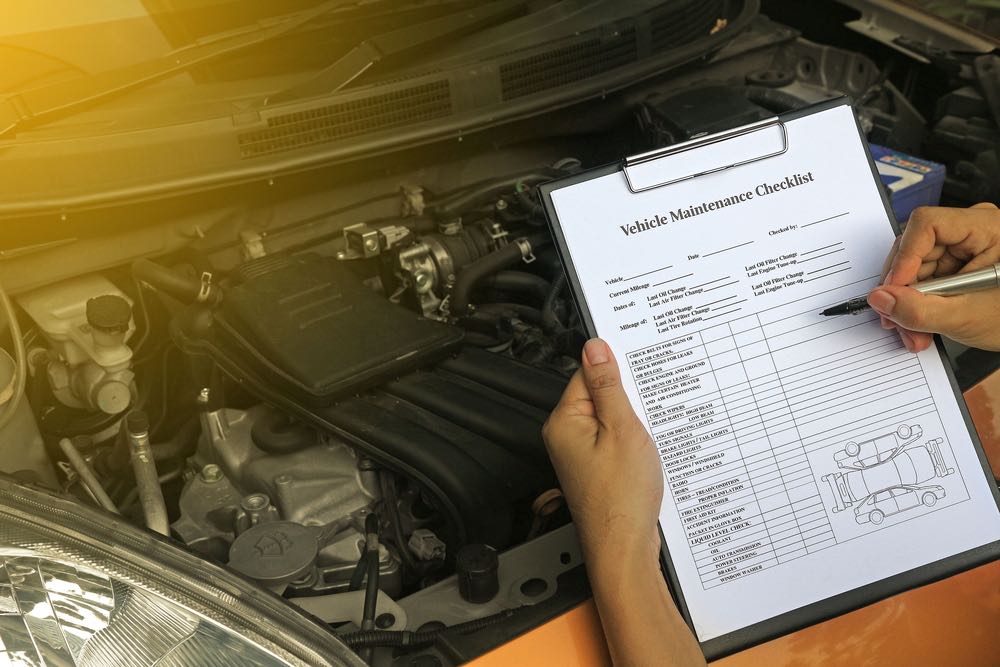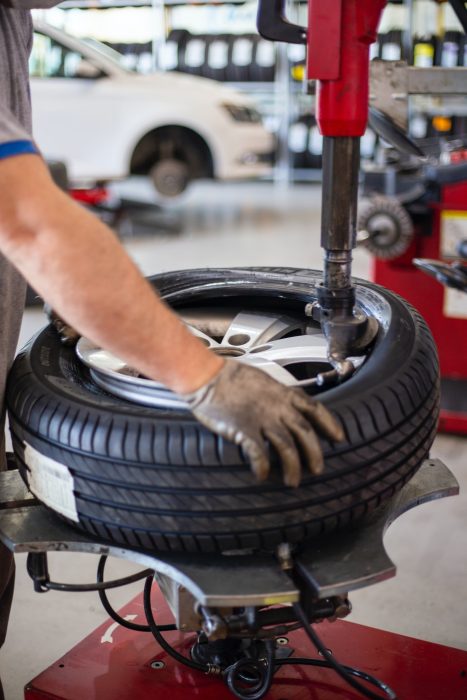
Vehicle ownership constitutes a significant financial commitment, necessitating regular and proper maintenance to ensure its durability and optimal performance. Neglecting routine car upkeep can lead to expensive repairs and a diminished resale value. In the long term, allocating time and effort to care for your vehicle can result in substantial cost savings and a safer driving environment.
Preventing Costly Repairs
Regular car maintenance encompasses routine inspections, oil changes, tire rotations, brake checks, and other essential services. Timely addressing minor issues helps prevent their escalation into major, costly repairs. For instance, adhering to recommended oil change intervals ensures the engine’s proper lubrication, reducing the risk of engine damage and prolonging its operational life.
Improving Fuel Efficiency
A well-maintained car operates with greater efficiency, leading to improved fuel economy. Simple tasks such as maintaining proper tire pressure, changing air filters, and conducting regular tune-ups can significantly enhance gas mileage. Over time, these enhancements translate into noteworthy savings at the fuel pump, reducing expenses and minimizing environmental impact.
Prolonging Vehicle Longevity
Regular maintenance contributes to extending your vehicle’s overall lifespan. Critical components like the engine, transmission, and suspension endure longer with adequate care. Consistently inspecting and replacing worn-out parts can prevent substantial damage, ensuring your vehicle remains dependable and functional for an extended period.
Safeguarding Resale Value
If you intend to sell or trade your vehicle in the future, regular maintenance is fundamental to uphold its resale or trade-in value when upgrading your car. A well-maintained car with a comprehensive service history is more appealing to potential buyers and can command a higher price or appraisal. Furthermore, a properly maintained vehicle is less likely to harbor concealed issues, instilling confidence in buyers and aiding in negotiation for a favorable deal.
Adhering to Warranty Conditions
Adhering to the manufacturer’s prescribed maintenance schedule is critical to preserve the validity of your car’s warranty, if applicable. Non-compliance with these guidelines could result in the nullification of the warranty, leaving you accountable for the repair costs that would otherwise be covered.
Early Issue Detection
Regular car maintenance facilitates the early detection of potential problems before they exacerbate. Prompt identification and resolution of issues can spare you from major breakdowns and expensive repairs. Mechanics can identify warning signs during routine inspections and recommend necessary repairs or replacements, contributing to long-term cost savings.

The Significance of Preventative Car Maintenance in Preventing Costly Repairs
Owning a vehicle entails the responsibility of ensuring its proper maintenance. Engaging in regular preventative car maintenance is a fundamental practice that helps in mitigating hefty repair costs while ensuring the seamless operation of your vehicle. Allocating a small amount of time and effort into preventative maintenance significantly contributes to extending your car’s lifespan and avoiding potentially expensive repairs. Below, we will explore essential aspects of preventative car maintenance that every car owner should prioritize.
Regular Oil Changes
A vital aspect of preventative car maintenance is adhering to a routine of regular oil changes. Engine oil plays a critical role in lubricating the engine, ensuring its smooth operation. Over time, oil breaks down and becomes less effective. Following the manufacturer’s recommended oil change intervals helps in maintaining a clean and well-lubricated engine, thereby preventing engine wear and tear, which could lead to costly repairs.
Monitoring Fluid Levels
Monitoring and replenishing essential fluids like coolant, brake fluid, transmission fluid, and power steering fluid are crucial for maintaining your vehicle’s overall health. These fluids are integral to the proper functioning of various car systems. Inadequate levels or contaminated fluids can result in engine overheating, brake failure, transmission issues, and more. Regular checks and maintaining proper fluid levels can prevent significant damage, subsequently averting expensive repairs.
Tire Inspection and Rotation
Tire maintenance is often underestimated but holds substantial significance in preventative car maintenance. Well-maintained tires that are properly inflated and routinely rotated wear more evenly, extending their lifespan. Additionally, this practice enhances fuel efficiency and ensures better traction on the road, ultimately contributing to overall safety. Neglecting tire maintenance can result in uneven wear, reduced fuel efficiency, and the need for premature tire replacements.
Brake System Evaluation
Undoubtedly, brakes are one of the most crucial safety components of a vehicle. Regular inspections of the brakes, brake pads, and brake fluid levels are essential to confirm their proper functioning. Indicators like squeaking or grinding sounds, prolonged braking distances, or a spongy brake pedal necessitate immediate attention. Addressing brake issues promptly can prevent accidents and save you from incurring costly repairs in the future.
Adherence to Scheduled Maintenance Services
Compliance with your car’s recommended maintenance schedule, provided by the manufacturer, is of paramount importance. These schedules encompass routine inspections, replacements, and maintenance tasks. Adhering to these guidelines ensures that your car is being maintained appropriately and in accordance with the manufacturer’s recommendations. Furthermore, it aids in early detection of potential issues, preventing them from escalating into major and costly repairs.
Financial Advantages of Preventative Car Maintenance
While investing in preventative car maintenance may initially seem like an added expense, it is a prudent investment in the long run, offering several financial advantages:
Cost Savings
Regular maintenance proves to be considerably more economical than major repairs or replacements. Timely addressing of minor issues prevents them from developing into expensive problems.
Extended Vehicle Life
By conscientiously maintaining your car and promptly addressing any issues, you can significantly prolong its operational life. This maximizes your investment and delays the need for acquiring a new vehicle.
Prioritizing preventative car maintenance is an indispensable aspect of responsible car ownership. Regular inspections, fluid level checks, tire maintenance, and adherence to maintenance schedules can shield you from unexpected and expensive repairs. Not only does this practice save you money, but it also ensures the safety and longevity of your vehicle. Remember, a well-maintained car translates to a reliable and cost-effective mode of transportation.
Regular car maintenance is a prudent financial decision that pays off in the long run. It prevents major repairs, improves fuel efficiency, extends your car’s lifespan, maintains its resale value, complies with warranty requirements, and identifies issues early. By investing in routine upkeep, you not only ensure a safer and smoother driving experience but also save a substantial amount of money over the life of your vehicle. So, consider regular car maintenance as a wise investment that will keep both your vehicle and your budget in excellent condition.
Longevity and Resale Value: How Maintenance Affects Your Car’s Worth
Vehicle ownership entails more than simply driving; it encompasses the duty of proper maintenance to ensure a prolonged lifespan and maintain resale value. Regular upkeep is not just about ensuring a smoothly running car—it represents an investment in its future value. This article delves into the influence of maintenance on a car’s longevity and, consequently, its resale value or best price.
Extending Longevity through Maintenance
Regular maintenance significantly prolongs the lifespan of your vehicle. Here’s how:
- Engine Health – Consistent oil changes and scheduled maintenance ensure the engine remains lubricated and functions optimally. This straightforward practice prevents undue wear and tear on the engine, thus extending its operational life.
- Transmission Care – Regular changes of transmission fluid and routine checks are vital to guarantee the efficient operation of your transmission. Well-maintained transmissions are less likely to experience premature failure, contributing to an extended vehicle lifespan.
- Brake System Maintenance – Regular inspections and timely replacements of brake pads and rotors are essential to maintain the effectiveness of the braking system. A well-maintained brake system is crucial for your safety and adds to the overall durability of your car.
- Suspension and Steering – Regular inspections and replacements of worn-out components in the suspension and steering system ensure a smoother ride and prevent further damage, ultimately enhancing the overall longevity of your vehicle.
- Tire Rotation and Alignment – Regular tire rotations and alignments aid in maintaining even tire wear and optimal traction, leading to an extended tire life.
Resale Value and the Influence of Maintenance
Proper maintenance not only ensures longevity but also directly impacts a vehicle’s resale value. Here’s how:
- Documented Service History – Prospective buyers often seek vehicles with a comprehensive service history. Keeping precise records of all maintenance and repairs demonstrates responsible vehicle care, instilling confidence and potentially fetching a higher resale price.
- Perceived Value – A well-maintained car presents itself better, both aesthetically and functionally. A clean, well-maintained vehicle creates a positive initial impression, resulting in a higher perceived value and an improved resale price.
- Fewer Future Expenses – Buyers are willing to pay more for a vehicle that requires fewer immediate repairs or maintenance. A well-maintained car reduces the perceived future expenses for the buyer, increasing the amount they are willing to pay upfront.
- Negotiation Leverage – A vehicle with a well-documented maintenance history provides negotiation leverage when selling or trading it. You can confidently justify a higher asking price or negotiate a better trade-in deal based on the documented care and upkeep of the vehicle.
- Faster Selling Process – A well-maintained car tends to sell faster in the resale market. Buyers are more likely to make a purchase when they see evidence of consistent maintenance, resulting in a quicker sale and potentially a more competitive price.
Regular maintenance isn’t solely about maintaining your car for your benefit—it’s an investment that pays off when it’s time to sell or trade your vehicle. Proper upkeep extends your car’s life and directly influences its resale value. By investing time and effort into regular maintenance, you not only ensure a safer and smoother driving experience but also preserve and potentially increase your vehicle’s worth over time.
Routine car maintenance transcends a mere task; it represents an investment in your vehicle’s durability and dependability. By averting major repairs, enhancing fuel efficiency, prolonging your car’s lifespan, safeguarding its resale value, adhering to warranty terms, and identifying issues early, you ultimately save money. Prioritizing regular car maintenance not only guarantees a safer driving experience but also shields you from unforeseen financial burdens. Cultivate a habit of caring for your vehicle to reap the benefits of a well-maintained car for years to come.






